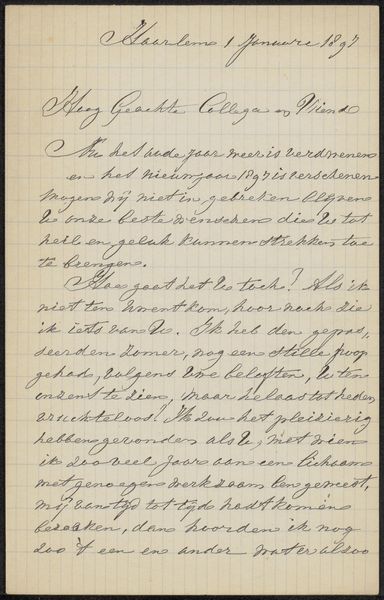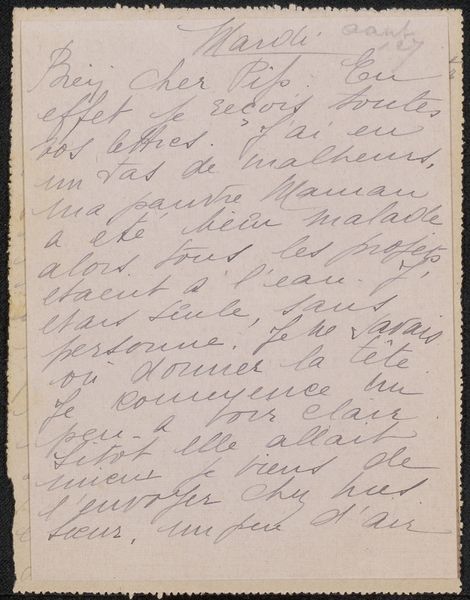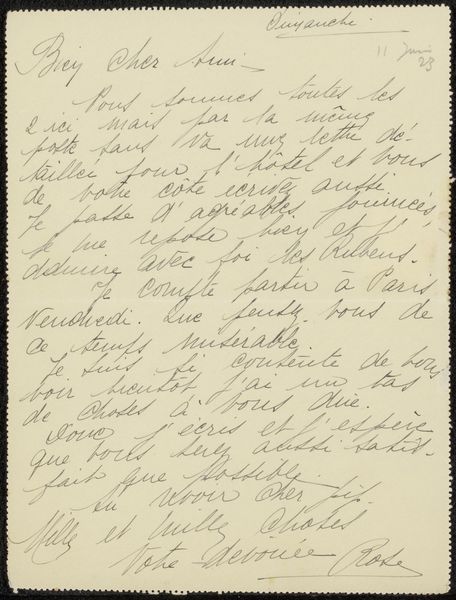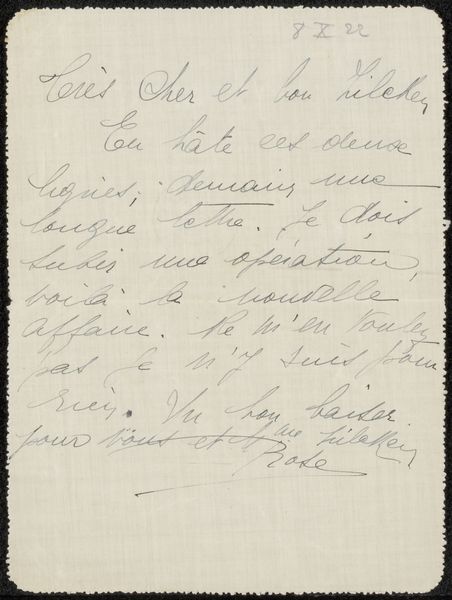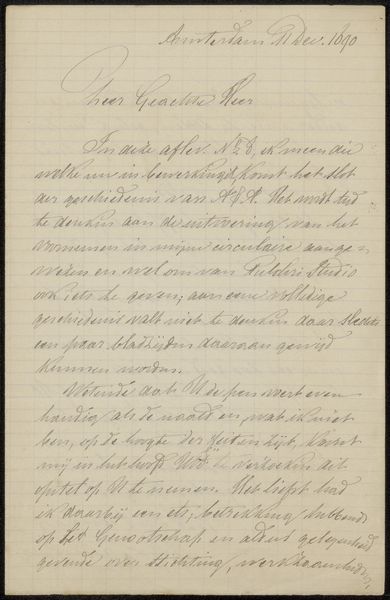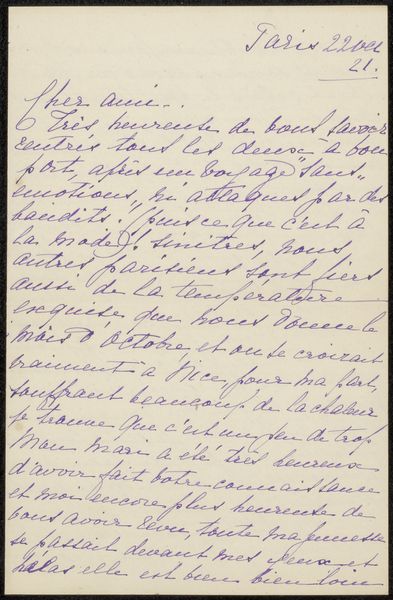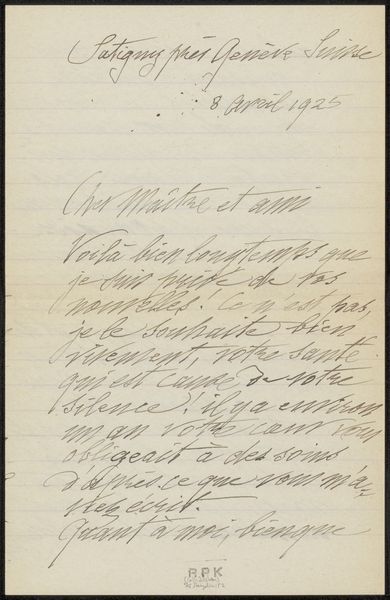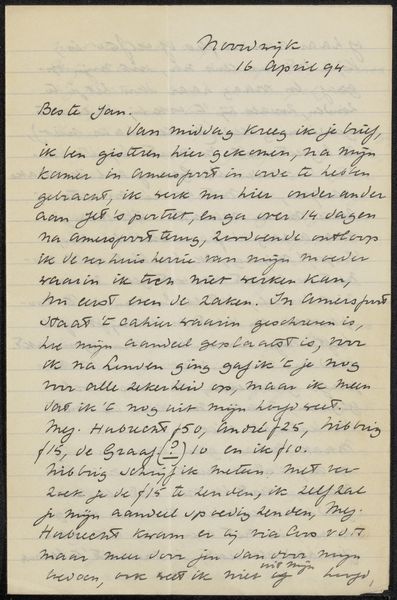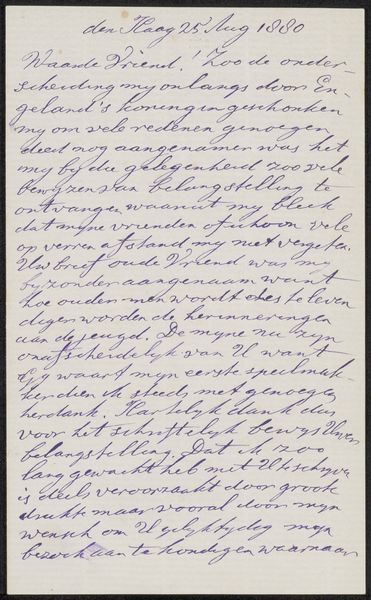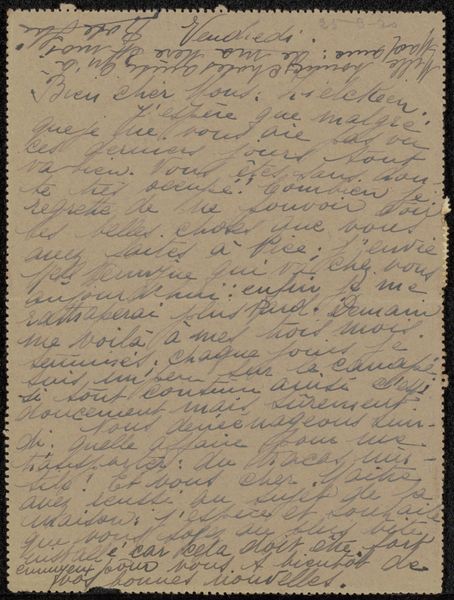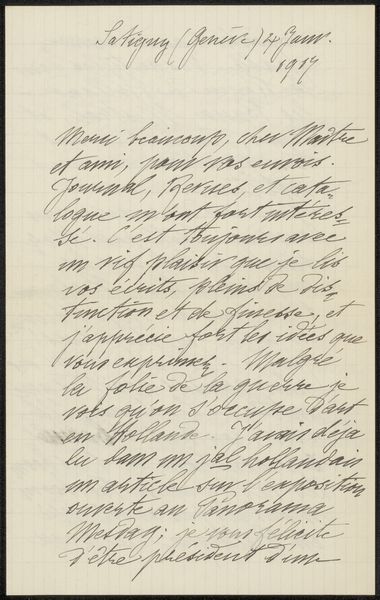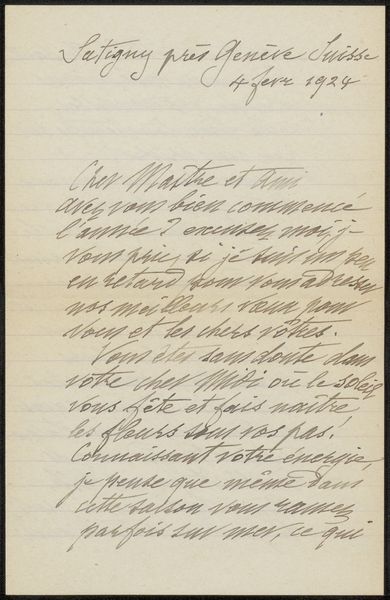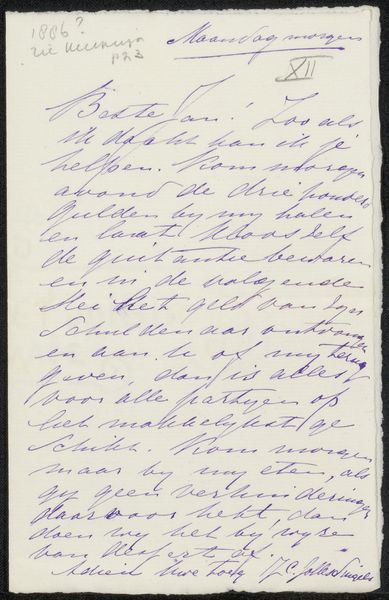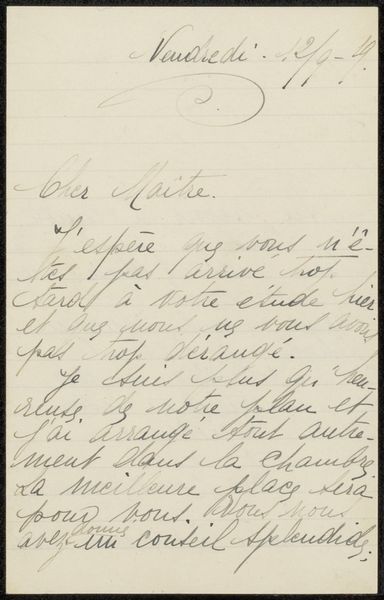
drawing, paper, ink
#
portrait
#
drawing
#
aged paper
#
hand written
#
hand-lettering
#
old engraving style
#
hand drawn type
#
hand lettering
#
paper
#
ink
#
hand-written
#
hand-drawn typeface
#
pen-ink sketch
#
pen work
#
calligraphy
Copyright: Rijks Museum: Open Domain
Editor: Here we have "Brief aan Philip Zilcken," possibly from 1918, by Alphonse Stengelin. It's an ink drawing on paper, and the script has a real elegance to it. What particularly stands out to you about this piece? Curator: It’s fascinating to consider this letter through a material lens. We see ink, paper, handwriting - the very physical act of Stengelin writing to Zilcken. It asks questions about the labour involved, not just in the writing, but in the paper production, the creation of ink... where were these materials sourced from? What can that tell us? Editor: I hadn't considered the materials beyond their artistic quality, focusing instead on its face value as correspondence. The idea of following each element back to its origins…that's a great point! It feels like a deep dive into social history. Curator: Exactly! And note the grid underneath the handwritten text, do you think it was intentional? It highlights the labour, and the standardization of paper manufacture during this period and contrasts it beautifully with the fluid handwriting style on top of the structured grid. What social implications would uniform paper and hand-penned writing mean to the recipient? Editor: I suppose it’s that intersection of the individual and the industrial. It shows even within this standard medium of factory made letter-writing paper that personalized creative production is still present. Curator: Precisely! We're looking at not just art, but a historical record of material culture, and how individual expression navigated, and maybe even subverted, those material constraints. Considering all of the points about the materialist aspect, did anything change the way you understood it? Editor: Absolutely. I am thinking much more deeply now about how materials tell a story about labor and industry. It takes art analysis beyond the visual! Curator: Glad to hear! Approaching art with an understanding of its production reveals layers of meaning that are frequently overlooked.
Comments
No comments
Be the first to comment and join the conversation on the ultimate creative platform.
